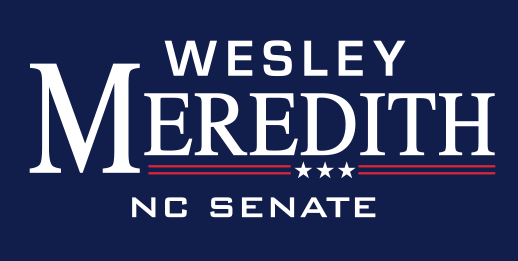The North Carolina Senate tentatively passed a $21.25 billion bipartisan state budget yesterday that provides public school teachers the largest pay raise in history – averaging 7 percent. The $282 million investment propels North Carolina from near the bottom to 32nd in national rankings.
The budget includes a prudent 2.2 percent overall spending increase to keep pace with inflation. The education budget provides increases for the state’s K-12 public schools by $184.8 million, for North Carolina’s community colleges by $11.9 million and for the University of North Carolina system by $26.2 million.
It also includes an additional $186 million for a Medicaid Contingency Reserve. In the past, this state has been forced to spend over two billion additional tax dollars on this runaway federal entitlement program since 2011 and plan to return for a special session in November to restructure and reform Medicaid.
This most recent budget further improves upon the groundwork laid in budgets over the past few years.
Below are some more details on what was accomplished in the past sessions.
—————————————————————————————————————————————–
- Implemented comprehensive tax reform that is providing major tax relief to all North Carolina families and making our state more attractive to job-creating businesses. Following decades of Democratic control, North Carolina had the highest taxes in the Southeast. The legislature passed a tax reform plan that simplified the state’s 1930s Depression-era tax code, cut personal and corporate income tax rates, eliminated the death tax and ended dozens of loopholes for special interests, moving North Carolina from the bottom of national rankings to the 17th best business tax climate in America.
- Implemented major education reforms to strengthen student literacy, improve graduation rates, reward effective teachers and give parents tools to make better informed decisions about their children’s education.
- Passed the largest teacher pay raise in state history, with an average 7 percent increase. The $282 million investment will propel North Carolina from near the bottom to 32nd in national rankings.
- Adopted a balanced, fiscally responsible state budget that invests in core services, streamlines state government, strengthens public education and grows North Carolina’s economy.
- Reformed our state’s broken unemployment insurance program, setting a pathway for repaying North Carolina’s $2.5 billion debt to the federal government that was brought about by years of mismanagement by previous Democratic leaders. Under our plan, we’ll be out of debt by 2016 – freeing up capital and providing certainty for businesses to create jobs. Our changes are making North Carolina’s unemployment system solvent and removing one of the biggest impediments to job creation and economic growth.
- Passed sweeping changes to the state’s burdensome regulatory environment. The Senate passed two major regulatory reform bills to get rid of red tape that chokes off economic growth and make our state a more attractive place to do business. With tax and regulatory reform, businesses can grow in this state. Employment opportunities will increase for North Carolinians and our economy will continue to grow.
- Approved bipartisan legislation to spur our economy by tapping into North Carolina’s abundant energy resources. The Domestic Energy Jobs Act is a comprehensive energy law that paved the way for a flourishing onshore and offshore energy sector.
- Passed bipartisan legislation to move North Carolina further ahead in achieving energy independence and creating a robust energy sector. The Energy Modernization Act moves North Carolina ahead with natural gas exploration and development, a step expected to help the state jump start a thriving new industry, attract thousands of well-paying jobs and push toward long-term energy independence.
- Passed major election reforms including a hugely popular, common-sense provision that requires North Carolinians to show a photo ID when they vote. Polls show that nearly three-quarters of North Carolina residents support requiring voters to show photo ID before voting. Our action brought North Carolina in line with the majority of other states that already require voter ID.
- Improved our investment in North Carolina’s transportation infrastructure. Changes to the North Carolina Highway Trust Fund will allow us to accelerate transportation projects across the state, in every region and in our local communities – a move that is expected to create at least 260 projects and more than 240,000 jobs over the next 10 years, according to the state Department of Transportation.
- Improved medical billing fairness and transparency to help consumers make better-informed decisions about their treatment.
- Invested in our state’s rural communities by launching a new, accountable Rural Economic Development Division within the state Department of Commerce. And we upheld our commitment to ensuring accountability in state government by ending the blatant misuse of tax dollars at the N.C. Rural Center.
- Expanded job recruitment and grant programs while giving local communities significantly more flexibility to invest in public education and other priorities.
- Protected the Second Amendment rights of North Carolinians. The Senate passed legislation to expand the number of places that people with a concealed carry permit can carry firearms to protect themselves and their families – while also strengthening safety measures for the public and penalties for criminals who violate our gun laws.
- Prevented gamesmanship of the state retirement fund by highly-compensated state and local employees seeking to inflate their pension benefits near the end of their careers at the expense of taxpayers and rank-and-file state workers.
- Ensured justice for more than 100 North Carolina families whose loved ones’ lives were brutally taken by passing a bill to end the de-facto moratorium on the death penalty in North Carolina.
- Strengthened transparency and accountability in the use of tax dollars and required greater private investment in legislation authorizing the state Department of Commerce to partner with a newly-formed private non-profit organization.
